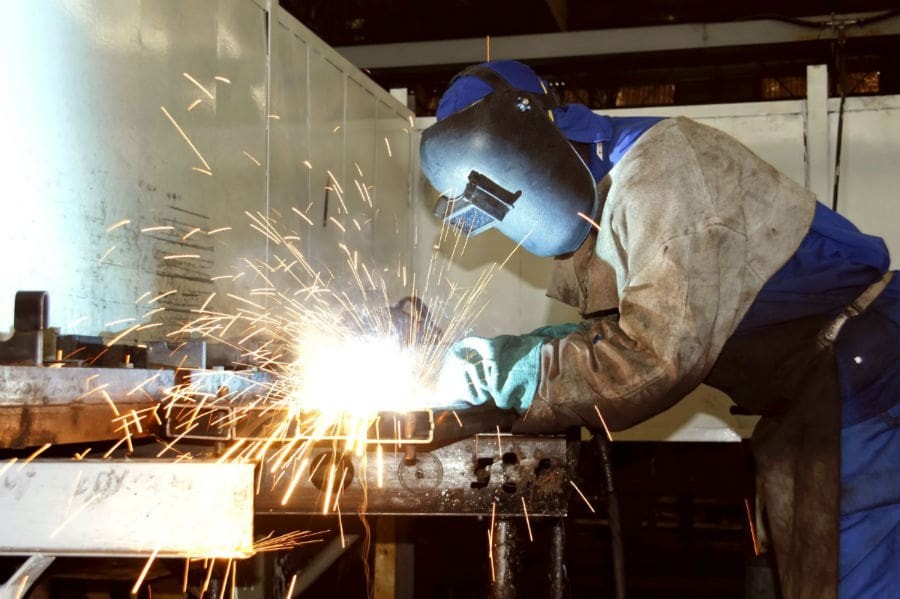Heavy machinery accidents often cause serious and life-threatening injuries, requiring extensive treatment.
Workers who perform jobs involving the use of heavy machinery are at a high risk of injury. A worker injured in a machinery accident at the workplace may claim workers’ compensation benefits. If you come into contact with heavy machinery or equipment at the workplace, you are at a greater risk of injury than workers in other fields. Whenever a worker operates or uses machinery involving moving parts, they are at a higher risk of injury. A small mistake or a minor malfunction can lead to a serious injury or even death of the worker.
FREE CONSULTATION

30 YEARS EXPERIENCE
OVER $100 MILLION COLLECTED
ONLY WORK COMP
This is the lawyer you want to hire! Just read the reviews. It is all true. Incredible! He will get you every dollar of lost wages, get you every ounce of medical treatment, and get you the highest possible award from the Division of Workers Compensation.
These reviews are correct. This attorney is incredible. He knows workmans compensation, fights for denied treatment and wages, and gets your on the job injury rated by the best doctors. I will be using him from here on our great experience.
The Law Office of James M Hoffmann was referred to me from a previous client, that was extremely impressed, with his service and outcome.
I met with Jim Hoffmann to discuss a car accident. Three cars were involved, my car was totaled, and I was seriously injured. After meeting with Jim the very first time, I immediately felt comfortable, and knew that he would have my back, and would fight for me.
Throughout my journey, I dealt with a lot of pain and several issues that lasted for years. During this time I had to contact Jim and Jamie (Jim’s wonderful assistant) many times. Every time I sent an email with questions, I received feedback extremely quickly!
I feel Jim negotiated a great settlement for me!
The Law Office of James Hoffman will be the first place I contact if I ever need his help again!
Suzanne Charles
Compensation? Get this lawyer. Simply better than all the rest.
Industrial Accidents Involving Heavy Machinery
Work-related accidents can occur for a variety of reasons. They can occur if a body part or piece of clothing becomes stuck in the machinery or someone accidentally removes the warning label. Machinery accidents often cause serious and life-threatening injuries. Amputation is a common injury sustained in industrial or machinery accidents. In industrial accidents, workers have lost extremities such as fingers, hands, or arms. These injuries require extensive treatment and have life-changing consequences.
Losing a finger or limb will change a person’s entire life. The loss may render a person incapable of working and caring for their loved ones. As most workers who are injured at the workplace have people dependent on them, the injury will affect an entire family and not just the individual.
Compensation for Injured Workers
Missouri workers’ compensation lawyers explain that industrial workers often work long shifts, and it is not surprising that many workers are injured. It is important that the machinery is maintained well and the workers are trained properly for their operation. Even a small error anywhere in the chain can cause an injury.
Employers know that workers can become injured, so they must have workers’ compensation insurance. Employees must understand that workers’ compensation is no-fault insurance, which means an injured worker will receive benefits irrespective of who is responsible for the injury.
Third-Party Claims and Workers’ Compensation
Third-party claims are distinct from workers’ compensation claims. In some cases, a machinery accident could result from equipment failure; in such cases, the manufacturer or subcontractor may be held liable for the accident. Workers’ compensation benefits that an injured worker may receive are limited, but there is no such cap on third-party damages.
If you have been injured in an industrial or machinery accident, contact The Law Office of James M. Hoffmann at (314) 361-4300. We will explain the workers’ compensation process and help you determine how to receive the correct compensation.
Workplace Injury and Accident Causes
Asbestos Exposure
Asbestos Removal
Second-Hand Asbestos Exposure
Sexual Assault Workplace
Physical Assault at Workplace
Workplace Injuries Assembly Line
At Fault Accident
Workplace Attack
Benzene Exposure
Injured on Lunch Break
Building Collapse
Workplace Bullying
Chemical Exposure in the Workplace
Chemical Hazards in the Workplace
Cold Stress in the Workplace
Combustible Dust Explosion
Computer Use
Construction Site Accident
Conveyor Belt Accident
On the Job Injury Cause by Coworker
Crane Accident
Injuries from Desk Jobs
Diesel Exhaust Fumes Exposure
Digging Injury
Breaking Company Policy
Drowning at Work
Workplace Drug UseElectrical Workplace Accidents
Elevator Accident
Equipment Accident
Ergonomics in the Workplace
Excessive Overtime
Workplace Explosion
Extreme Danger
Fall at Work
Fire in the Workplace
Slicer Accident
Forklift Accident
Walk in Freezer
Gas Pipeline Accident
Hard Work
Workplace Hazardous Substances
Hazardous Equipment in the Workplace
Heavy Machinery Accident
Horseplay in the Workplace
Danger at Workplace
Insomnia in the Workplace
Jumping Accident
Ladder Falls at Work
Loading Dock Accident
Machinery Accident Workplace
Equipment Failure Accident
Mining Accident
Mold in the Workplace
Nail Gun Accident
Workplace Noise
Non Collision Accident
Heavy ObjectsWorkplace Office Equipment
Opioid Use
Injury at Work Due to OSHA Violation
Overexertion Injuries at Work
Use of Pain KillersPower Tool Injury
Inadequate PPE
Repetitive Motion Injuries in the Workplace
Mansfield Bar
Scaffolding Accident
Secondhand Smoke in the Workplace
Side Effects
Silica Exposure
Sleep Disorder
Slip and Fall Injuries in the Workplace
Stairs at Work
Struck by a Vehicle
Tar Fumes
Toxic Chemical Exposure
Toxic Fumes in the Workplace
Car Accident While Working
Trench Collapse
Trips at Work
Unsafe Working Conditions
Workplace Violence
Welding Injury
Winter Hazards in the Workplace
Working Shifts

